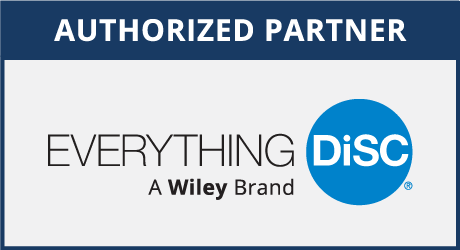Retaining your organization’s top talent shouldn’t be left up to Human Resources. Engaging, developing, and retaining crucial talent is every leader’s responsibility, especially for smaller organizations where every team member plays a crucial role in driving success. As a leader, your ability to inspire, empower, and support your team members can make all the difference in retaining your most valuable assets. Here are some leadership strategies to help you cultivate a work environment where talent thrives and chooses to stay:

1. Invest in their development
Demonstrate your commitment to your team's growth and professional development by providing access to training, mentorship programs, and development of new skills. Remember, not everyone is interested in climbing the corporate ladder. Is it possible you have critical talent that is happy growing and developing “in place?”
2. Foster open communication
Create a culture of transparency and open communication where team members feel comfortable expressing their ideas, concerns, and feedback. Regular check-ins, team meetings, and one-on-one discussions can help foster trust and strengthen the bond between leaders and their teams. According to Gallup, one meaningful conversation per week develops high-performance relationships more than any single leadership activity.
3. Recognize and appreciate
Make the time to recognize and appreciate the contributions of your team members regularly. Whether it's a simple thank-you note, public acknowledgment, or rewards program, showing appreciation for their hard work and dedication can boost morale and motivation.
4. Empower autonomy
Trust your team members to take ownership of their work and make decisions autonomously. Empowering employees to have control over their projects and initiatives fosters a sense of ownership and accountability, leading to ongoing growth and development, increased job satisfaction, and loyalty.
5. Promote work-life balance
Encourage a healthy work-life balance by offering flexible work arrangements, promoting vacation time, and respecting boundaries. Recognize that employees have lives outside of work and support them in achieving a balance that allows them to recharge and perform at their best is extremely attractive to high performers.
6. Provide meaningful work
Ensure that your team members feel connected to the purpose and impact of their work. Help them understand how their contributions align with the organization's goals and values, and provide opportunities for them to make a meaningful difference.
7. Offer competitive compensation and benefits
While salary and benefits are not the only factors influencing retention, they are essential considerations. Ensure that your compensation and benefits packages are competitive within the industry and reflect the value you place on your employees' contributions. Your high performers are the first to know when their talents are more valued elsewhere.
By implementing these leadership strategies, you can create an environment where your most important talent feels valued, supported, and motivated to stay and grow with your organization. Remember, retaining top talent is not just about offering competitive perks—it's about fostering a culture of trust, appreciation, and opportunity where employees thrive and succeed together.
Coaching Challenge
“Top talent” includes your high performers (those who go above and beyond to contribute more than is expected), high potentials or emerging leaders, individuals who have crucial knowledge of the organization or industry, and those who are in “hard to find” roles. Hopefully, it goes without saying that these individuals are also living and leading by example the organization’s core values.
Take a few minutes to review and assess the individuals on your team. Now review the seven strategies for retaining your most valued team members. Based on each team member individually or collectively, what action do you need to take to ensure you retain them within your team or the organization? How can you aim your strengths to execute on this plan? What will you act on today?




